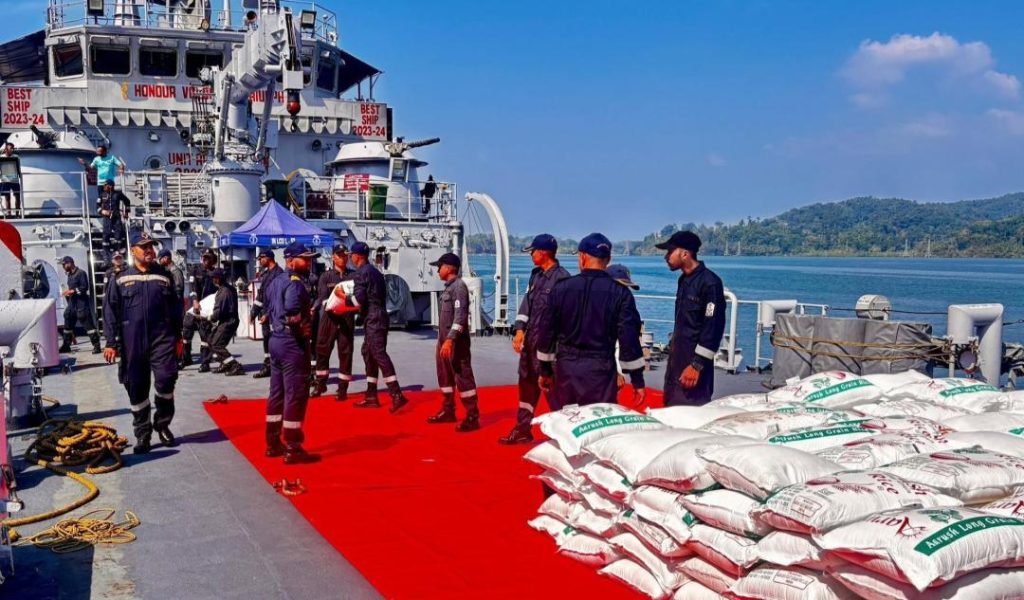
India Key to Rebuilding Life Post Myanmar Earthquake: UN Official
On February 24, 2021, a devastating 7.7-magnitude earthquake struck Myanmar, leaving a trail of destruction and chaos in its wake. The powerful quake caused widespread damage to infrastructure, homes, and livelihoods, affecting thousands of people. In the aftermath of this disaster, the United Nations has been working tirelessly to provide humanitarian aid to those affected. According to Sajjad Mohammad Sajid, the chief of UN Office for the Coordination of Humanitarian Affairs (OCHA) in Myanmar, India has emerged as a key player in the humanitarian response to this crisis.
In an interview with a leading news publication, Sajjad Mohammad Sajid emphasized India’s crucial role in rebuilding life and livelihoods in Myanmar. He stated, “I expect India will play a very pivotal role in rebuilding life and livelihood of people in Myanmar.” Sajjad’s comments underscore the significance of India’s involvement in the humanitarian response to the earthquake, highlighting the country’s commitment to providing aid and support to those affected.
One of the key initiatives undertaken by India to aid Myanmar post-earthquake is “Operation Brahma”. Launched by the Indian government, this operation has seen India dispatch relief materials, including food, medicine, and shelter, to those affected by the disaster. The operation has also provided support to Myanmar’s rescue efforts, with Indian teams assisting in the search and rescue operations.
India’s involvement in the humanitarian response to the earthquake is a testament to the strong bilateral relations between the two countries. Myanmar and India share a long history of cooperation, with both countries working together on various initiatives, including trade, security, and development. India’s participation in the humanitarian response is a reflection of this strong partnership, with the country providing critical support to its neighbor in times of need.
The earthquake that struck Myanmar has had a devastating impact on the country’s infrastructure, with reports indicating widespread damage to buildings, roads, and bridges. The disaster has also displaced thousands of people, leaving them without access to basic necessities such as food, water, and shelter. In response to this crisis, the United Nations has launched a flash appeal for $15.4 million to provide emergency assistance to those affected.
India’s contribution to this appeal is a significant one, with the country providing $1 million in immediate assistance. This funding will be used to support the UN’s emergency response efforts, including providing shelter, food, and medical care to those affected. India’s contribution is a testament to the country’s commitment to providing humanitarian aid to those in need, and its willingness to work with international partners to address global crises.
The earthquake that struck Myanmar is a stark reminder of the importance of disaster preparedness and response. The disaster has highlighted the need for countries to work together to build resilience and reduce the impact of natural disasters. India’s involvement in the humanitarian response to the earthquake is a step in the right direction, demonstrating the country’s commitment to partnering with other nations to address global challenges.
In conclusion, India’s key role in rebuilding life post Myanmar earthquake is a testament to the country’s commitment to providing humanitarian aid to those in need. The country’s involvement in the humanitarian response to the earthquake is a reflection of its strong bilateral relations with Myanmar, and its willingness to work with international partners to address global crises. As the world continues to grapple with the aftermath of this disaster, India’s contribution will be crucial in supporting the recovery efforts and rebuilding the lives of those affected.



